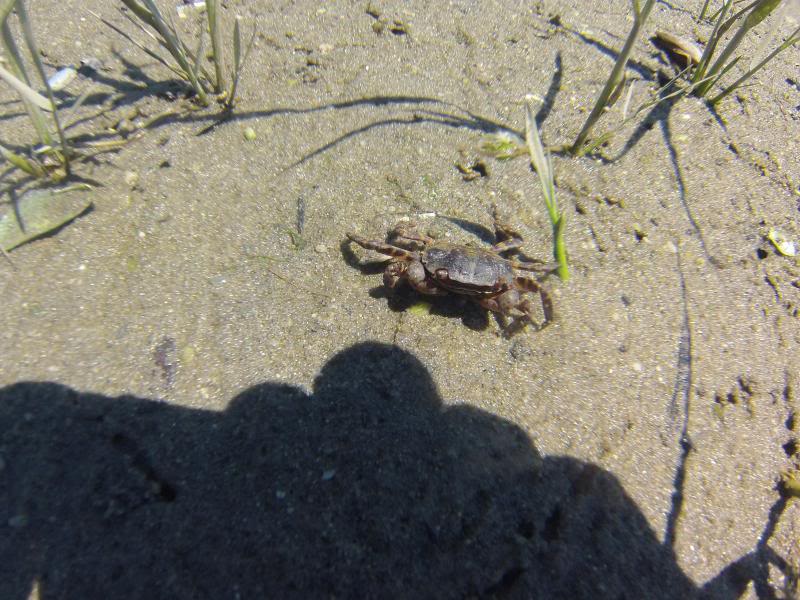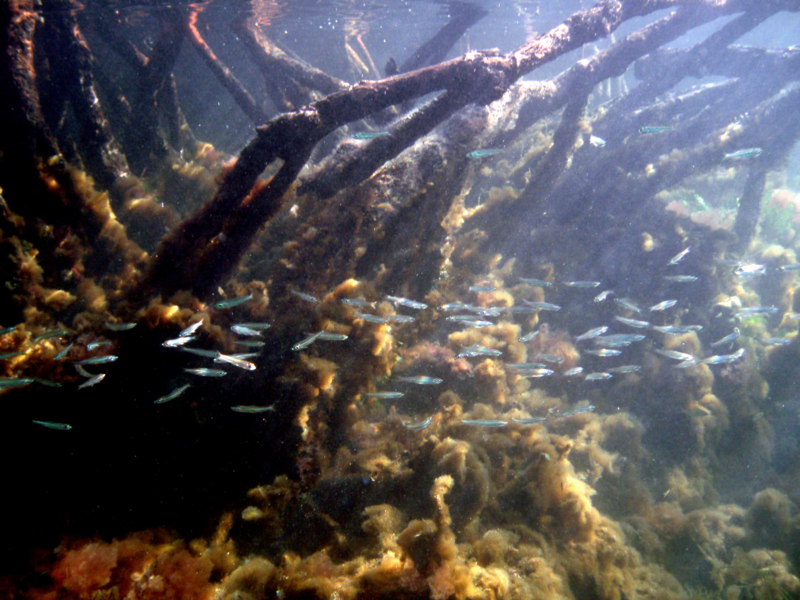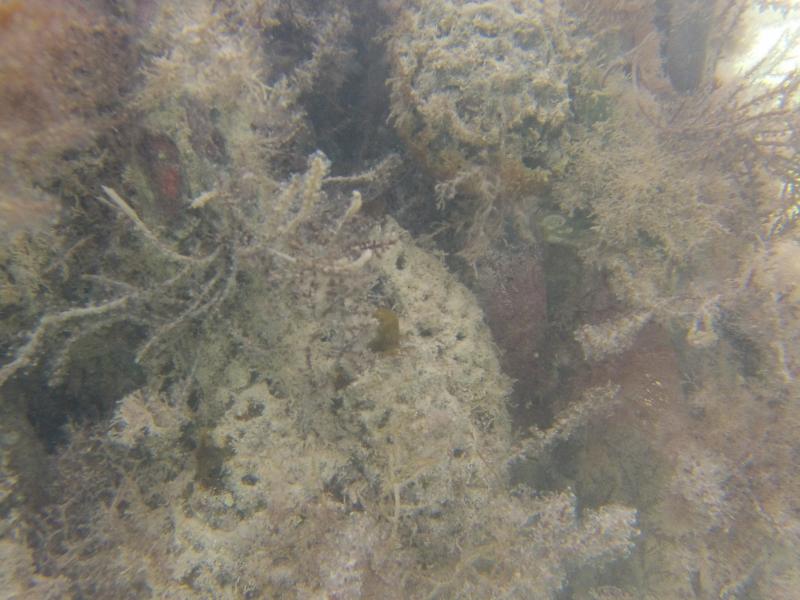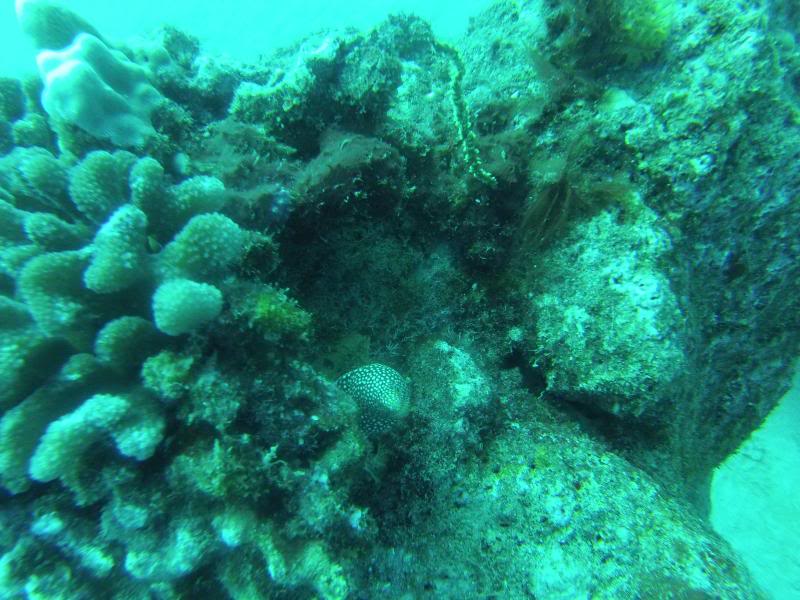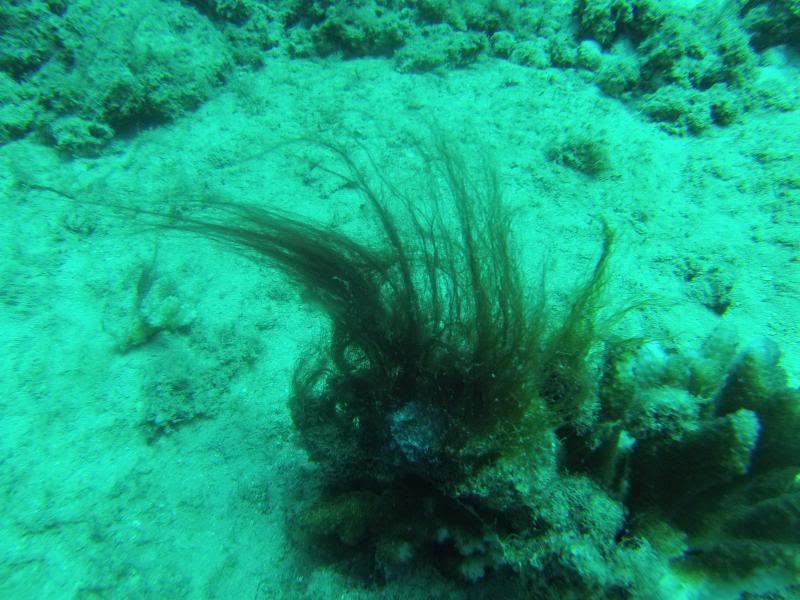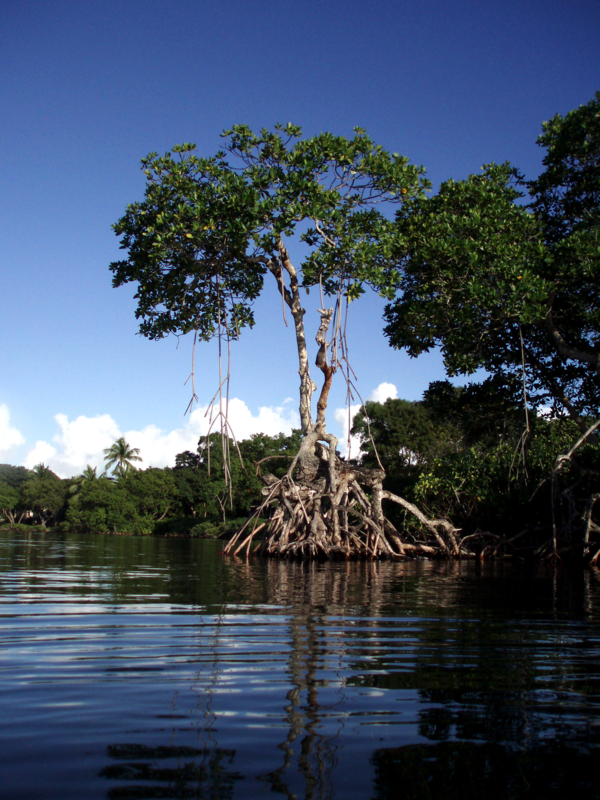As some of you might know, I’ve done a little “pivot” away from the business end of the reef hobby world, to focus on my other aquatic obsession, blackwater aquariums. Doesn’t mean I’ve abandoned reefkeeping. Nope. Just put my business focus on a different challlenge. It was funny, when I announced that I sold my interest in Unique Corals and started my own FW gig,some of my daily readers were sort of freaked,thinking,"Old Fellman's lost it and gone off the deep end!" Which, of course, I found amusing, because I'd "gone off the deep end" long before that, lol!

My new company, Tannin Aquatics, focuses on some really “niche” aquatic interests, and I’ve spent the better part of the last two years interacting with and “penetrating”, if you will, the freshwater aquarium world. No one really knew me, so it was totally cool being this opinionated NOBODY, writing insane rants about weird topics, talking about "crossover reefing skills", and selling dried "twigs and nuts" intended to be placed in your aquarium to make the water brown. Yeah. That took a while to sort of seep into that world!

And, oh my- it has. We've created a global movement. Crazy.
I still blog every single day on my own website, where I give the usual "Fellman-drivel" to a whole new audience. Yet, for some reason, I am always drawn to the reef world. My company is just two years old, yet headed into some very interesting things in the freshwater (and now brackish) world. Our version is not the sterile green and white world you've come accustomed to in FW. Rather, it's about living, breathing, earthy habitats, with tinted water, decomposing botanicals...in many ways, "reef like." Oh, and don't rule out a "niche saltwater re-entry" at some point...All sorts of ideas here. Okay, enough about me and my company.
Let’s focus on the hobby world...The freshwater one...for minute. No groans. This is about us, too.
Yeah, the freshwater world...
It’s a radically different world than the one we are used to here. It’s been established for more than century, and there are specialties for just about everything, making it unbelievably segmented (good and bad if you’re a marketer, of course- depends on how you look at it)! And the freshwater world, sophisticated as it may be, has some strong “cultural beliefs” which keep it hanging on to some, well… close-minded thinking, in my opinion. Oh, and many of them look at us reefers as trend-mongering hipsters. Now, some of that might be true, but the fact is- we young upstarts can teach the old “freshies” a thing or two…

So what does this have to do with reef keeping, you might ask? Well, quite a bit actually. There’s a little “theme” I’ve noticed in large swaths of the freshwater world that could benefit from a little “reef makeover”:
I’m often surprised during conversations with some freshwater hobbyists who are thoroughly convinced that it’s important and beneficial to the aquarium hobby to have adapted fishes to our captive conditions, even to breed under them, rather than attempting to accommodate their needs by recreating the habitats from which they come. In other words, fishes which for eons have evolved to inhabit soft, acid waters are being “acclimated” to, and even bred under hard, alkaline tap water conditions. How long will this work before something gives?

The idea of "repatriating" fishes which come from soft, acidic blackwater habitats from our "tap water" conditions back into the water in which they have evolved, and learning how to manage the overall captive environment is by no means new or revolutionary. It's just that the hobby has sort of taken a mindset of "it's easier/quicker for US" to adapt them to the conditions we can most easily offer them. Just because they can "acclimate" to wildly different conditions than they have evolved to live under doesn't mean that they should. I mean, it's not about us. Right? The consistently successful serious breeders have understood this for a long time, and we all should, IMHO. As we’ve demonstrated, it's not at all impossible to provide such conditions as a matter of practice…
Need some examples of this concept? Well, look at us here in the reef community! Once hobbyists devoted their energies to providing fishes/corals/inverts the conditions that these organisms required to thrive- conditions the organisms evolved in over eons- rather than the conditions that were "easiest" for the hobbyists to provide, the hobby exploded, with successes beyond our wildest dreams available to everyone who learned the rules of the game.

And yes, technology and products eventually showed up on the market to enable this process of more easily providing what corals need. NOT to adapt them to more easily/conveniently-provided "tap water" conditions, low light, low flow, etc. Rather, it was to make it easier for the largest number of hobbyists to provide the natural conditions which make it possible for these organisms require to thrive. As much as we would have liked to be able to keep thriving reefs full of corals in table-salted tap water, nature won't let us play that way!
We have to play nature's game.
And nobody in the aquarium hobby does it better than reefers!

Pat yourselves on the back. It’s a lesson learned early in the “modern era” of reefkeeping, some 30-odd years back, which has enabled landlocked hobbyists in frigid climates to be able to successfully keep delicate reef-building stony corals in their living room. It’s what has enabled an entire industry of dedicated professional coral propagators to grow enough coral to someday meet the demands of the entire market, making it unnecessary to harvest from wild reefs. It’s what’s enabled even the neophyte reef hobbyist to be able to enjoy the wonders of the tropical ocean in his/her very first aquarium.
Accommodating the organisms we want to keep based on THEIR needs. NOT the other way around. A valuable lesson that the entire aquarium community could learn from. And it’s just “the way we do stuff” around here as reefers. The cost of admission. No other way is considered.
That’s the kind of stubbornness I can get behind!
Stay stubborn. Stay curious. Stay dedicated. Stay proud!
And Stay Wet.
Scott Fellman…REEFER
My new company, Tannin Aquatics, focuses on some really “niche” aquatic interests, and I’ve spent the better part of the last two years interacting with and “penetrating”, if you will, the freshwater aquarium world. No one really knew me, so it was totally cool being this opinionated NOBODY, writing insane rants about weird topics, talking about "crossover reefing skills", and selling dried "twigs and nuts" intended to be placed in your aquarium to make the water brown. Yeah. That took a while to sort of seep into that world!
And, oh my- it has. We've created a global movement. Crazy.
I still blog every single day on my own website, where I give the usual "Fellman-drivel" to a whole new audience. Yet, for some reason, I am always drawn to the reef world. My company is just two years old, yet headed into some very interesting things in the freshwater (and now brackish) world. Our version is not the sterile green and white world you've come accustomed to in FW. Rather, it's about living, breathing, earthy habitats, with tinted water, decomposing botanicals...in many ways, "reef like." Oh, and don't rule out a "niche saltwater re-entry" at some point...All sorts of ideas here. Okay, enough about me and my company.
Let’s focus on the hobby world...The freshwater one...for minute. No groans. This is about us, too.
Yeah, the freshwater world...
It’s a radically different world than the one we are used to here. It’s been established for more than century, and there are specialties for just about everything, making it unbelievably segmented (good and bad if you’re a marketer, of course- depends on how you look at it)! And the freshwater world, sophisticated as it may be, has some strong “cultural beliefs” which keep it hanging on to some, well… close-minded thinking, in my opinion. Oh, and many of them look at us reefers as trend-mongering hipsters. Now, some of that might be true, but the fact is- we young upstarts can teach the old “freshies” a thing or two…
So what does this have to do with reef keeping, you might ask? Well, quite a bit actually. There’s a little “theme” I’ve noticed in large swaths of the freshwater world that could benefit from a little “reef makeover”:
I’m often surprised during conversations with some freshwater hobbyists who are thoroughly convinced that it’s important and beneficial to the aquarium hobby to have adapted fishes to our captive conditions, even to breed under them, rather than attempting to accommodate their needs by recreating the habitats from which they come. In other words, fishes which for eons have evolved to inhabit soft, acid waters are being “acclimated” to, and even bred under hard, alkaline tap water conditions. How long will this work before something gives?
The idea of "repatriating" fishes which come from soft, acidic blackwater habitats from our "tap water" conditions back into the water in which they have evolved, and learning how to manage the overall captive environment is by no means new or revolutionary. It's just that the hobby has sort of taken a mindset of "it's easier/quicker for US" to adapt them to the conditions we can most easily offer them. Just because they can "acclimate" to wildly different conditions than they have evolved to live under doesn't mean that they should. I mean, it's not about us. Right? The consistently successful serious breeders have understood this for a long time, and we all should, IMHO. As we’ve demonstrated, it's not at all impossible to provide such conditions as a matter of practice…
Need some examples of this concept? Well, look at us here in the reef community! Once hobbyists devoted their energies to providing fishes/corals/inverts the conditions that these organisms required to thrive- conditions the organisms evolved in over eons- rather than the conditions that were "easiest" for the hobbyists to provide, the hobby exploded, with successes beyond our wildest dreams available to everyone who learned the rules of the game.
And yes, technology and products eventually showed up on the market to enable this process of more easily providing what corals need. NOT to adapt them to more easily/conveniently-provided "tap water" conditions, low light, low flow, etc. Rather, it was to make it easier for the largest number of hobbyists to provide the natural conditions which make it possible for these organisms require to thrive. As much as we would have liked to be able to keep thriving reefs full of corals in table-salted tap water, nature won't let us play that way!
We have to play nature's game.
And nobody in the aquarium hobby does it better than reefers!
Pat yourselves on the back. It’s a lesson learned early in the “modern era” of reefkeeping, some 30-odd years back, which has enabled landlocked hobbyists in frigid climates to be able to successfully keep delicate reef-building stony corals in their living room. It’s what has enabled an entire industry of dedicated professional coral propagators to grow enough coral to someday meet the demands of the entire market, making it unnecessary to harvest from wild reefs. It’s what’s enabled even the neophyte reef hobbyist to be able to enjoy the wonders of the tropical ocean in his/her very first aquarium.
Accommodating the organisms we want to keep based on THEIR needs. NOT the other way around. A valuable lesson that the entire aquarium community could learn from. And it’s just “the way we do stuff” around here as reefers. The cost of admission. No other way is considered.
That’s the kind of stubbornness I can get behind!
Stay stubborn. Stay curious. Stay dedicated. Stay proud!
And Stay Wet.
Scott Fellman…REEFER
Last edited by a moderator:







